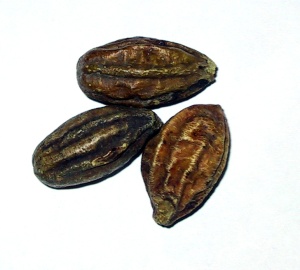HOME REMEDIES FOR MOUTH ULCER AND SWELLING IN GUMS FOR TODDLERS / BABIES
Toddlers / Babies can get mouth ulcers and swelling in gums too. This may also lead to bad breath and your toddler / baby becoming cranky.
There are a few home remedies that can be administered before you take your baby to the doctor. Home remedies are safe and harmless but they are not a substitute for a doctor's consultation.
The following remedies can be tried : -
Toddlers / Babies can get mouth ulcers and swelling in gums too. This may also lead to bad breath and your toddler / baby becoming cranky.
There are a few home remedies that can be administered before you take your baby to the doctor. Home remedies are safe and harmless but they are not a substitute for a doctor's consultation.
The following remedies can be tried : -
- If you are breast feeding your baby. Keep breast feeding him/her. Breast milk can be very healing for mouth ulcers. (FOR TODDLERS & BABIES
- You can apply coconut milk during the day time to the insides of the mouth and the gums. It will be soothing and help in healing. (FOR TODDLERS & BABIES)
- Add salt to warm water and rinse your mouth with it. The proportion of salt should be high i.e., 3 tbsp of salt in one glass of warm water. Gargle with this water and let it stay in your mouth for at least 30 seconds. Swoosh the water around inside your mouth so that it covers your teeth and gums thoroughly. Do not rinse your mouth with plain water immediately if you want to have relief from the pain for longer time. (FOR TODDLERS ONLY)
- If your baby suffers from swelling and infection in your gums more often, make it a habit of brushing your baby's teeth 3 times a day. Do not use a brush, but use your forefinger to brush gently. Please ensure that your finger nails are cut. Do not forget to make him rinse his mouth after every meal. Carry out proper hygiene. (FOR TODDLERS ONLY)
- If the swelling does not subside for a couple of days and your baby is not eating properly or crying, see a dentist and go through the treatment prescribed.
DISCLAIMER : "HOME REMEDIES ARE JUST SUPPLEMENTARY
APPROACHES. ALWAYS SEEK A QUALIFIED PHYSICIAN'S ADVICE FOR ANY ILLNESSES."







